Burka ban vote appeals to Islamophobia and feminists
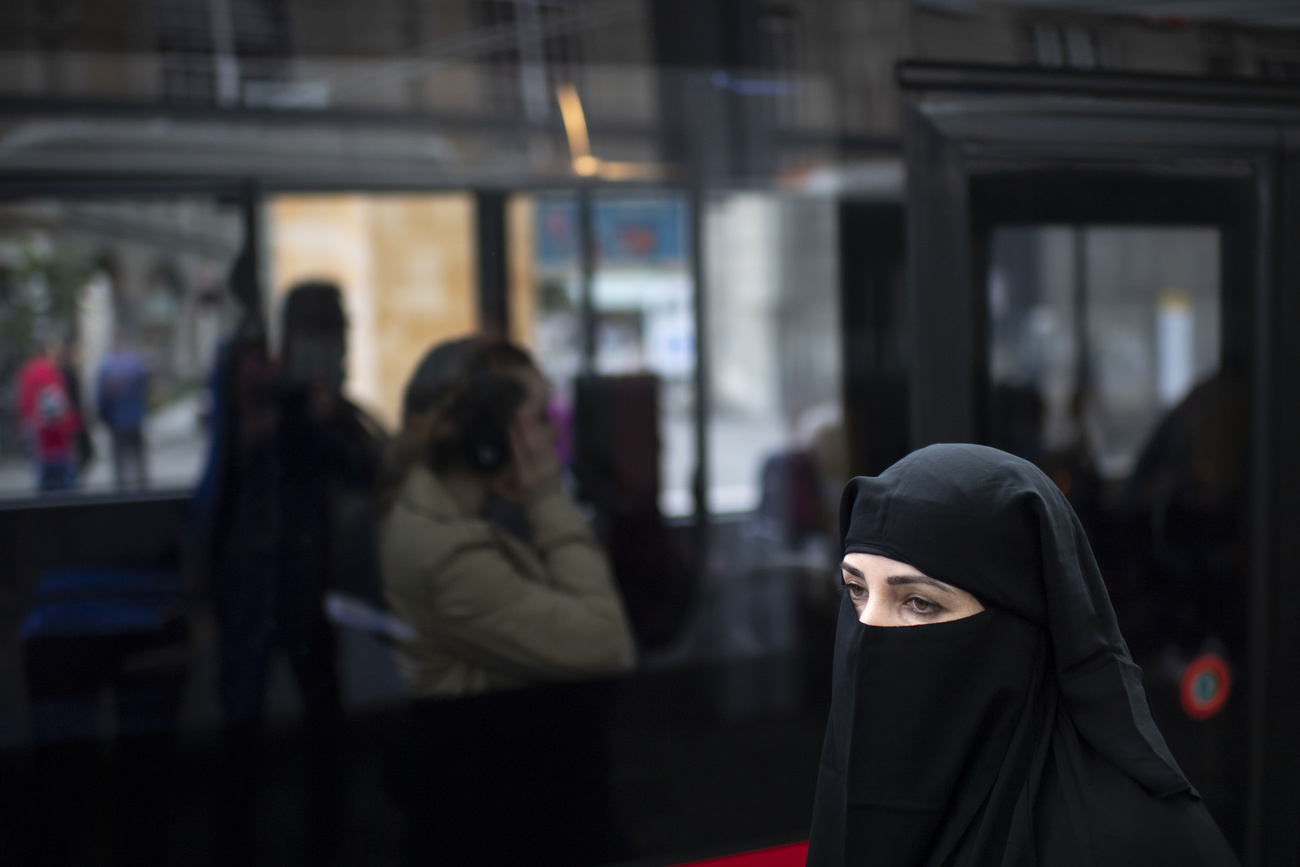
More than ten years after a ballot on banning minarets, Swiss voters have the final say on a proposal to outlaw face coverings in public.
Often referred to as “the burka ban”, the initiative by right-wing groups also includes a ban on the wearing of niqabs as well as other non-religious forms of face coverings.
The vote is scheduled for March 7.
The campaign takes place as hygiene masks are mandatory in busy public places due to the current coronavirus pandemic. It adds an ironic note to a debate which takes in religious freedom, female equality and fears of terrorism.
What’s at stake?
The proposal aims to outlaw the wearing of face coverings in public, notably in the streets, in public transport and offices, restaurants, shops and football stadiums. Exceptions are not allowed for tourists.
However, special rules apply for religious sites, health reasons or particular weather conditions.
In a bid to block the initiative, parliament has approved a legal reform which would ban face coverings purely for the purpose of identifying an individual, notably in public office or in public transport.
The alternative proposal foresees measures to promote equal rights for and integration of Muslim women. The legal amendment will come into force if the initiative is rejected in the nationwide vote.
What are the main arguments for and against?
Supporters argue a face covering ban helps prevent terrorist attacks and other forms of violence.
At the same time the ban is seen as a way to promote equality between Muslim women and men, giving women freedom from a discriminatory patriarchal society.
Members of the initiative committee have warned of Islam spreading in Europe and threatening Christian culture. But the committee rejects allegations that its proposal is undermining religious freedom. Instead the ban is aimed at strengthening basic values of the western world, they say.
In addition, supporters stress that similar restrictions are in place in other countries and that regional burka bans introduced in Switzerland five years ago have been efficient.
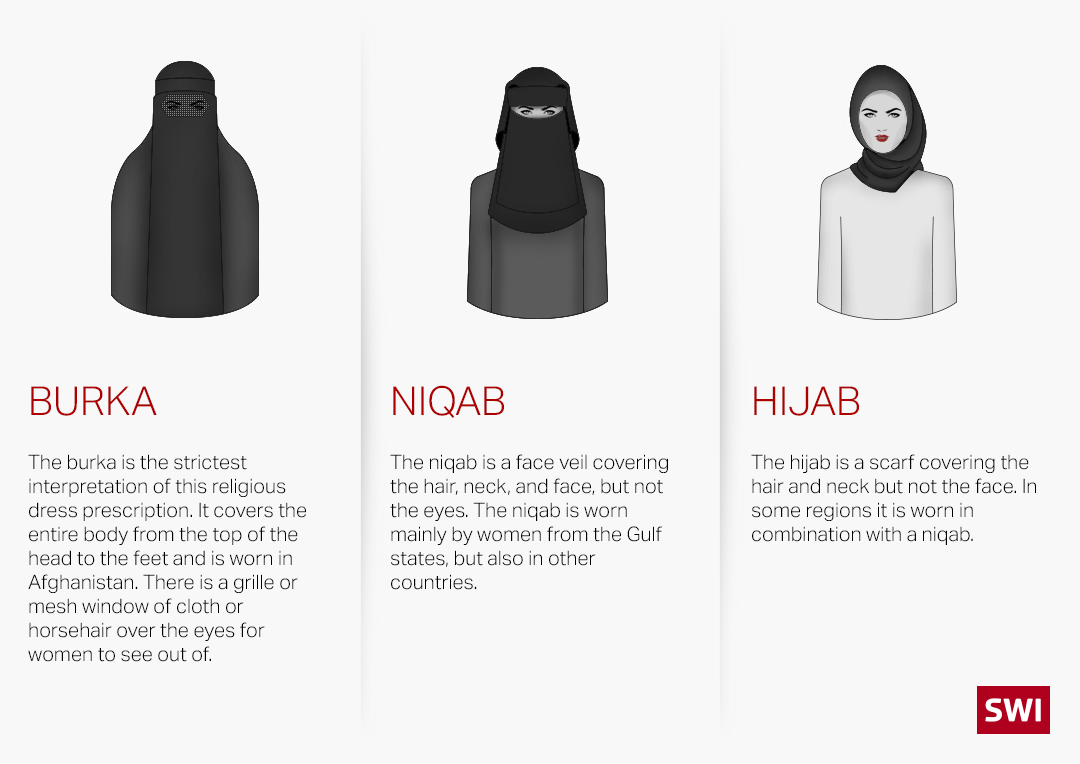
However, opponents say a Swiss-wide face covering ban is unnecessary, damaging for tourism and not in line with the divided power structure between the national and the cantonal authorities.
They say there is no reason to amend the country’s constitution for a very small group of people – estimated at up to 30 women – who wear a niqab or burka of their own free will.
Opponents say a ban would not be able to boost equal rights for Muslim women and improve their integration in Swiss society. A legal reform, approved by parliament last year, is better suited, they say.
Opponents also warn that tourists from wealthy Arab Gulf states could be discouraged from holidays in Switzerland if the ban wins a majority in the vote.
Why do voters have a say?
A committee of right-wing politicians and conservative activists submitted the necessary number of signatures to force a nationwide ban on face coverings in public.
More than 105,500 signatures for the people’s initiative were collected between March 2016 and September 2017.
Under the Swiss system of direct democracy, an amendment to the country’s constitution needs the support of at least 100,000 Swiss citizens.
Who are the opponents and supporters?
The main supporters of the initiative are the right-wing Swiss People’s Party as well as other conservative groups and several politicians from centre-right and centrist parties.
A group of feminists and liberal Muslims have also come out in favour of the ban on burkas and niqabs in public.
The supporters face a broad alliance of opponents from the other main political parties from the left to the centre, the government and a clear majority of the Swiss parliament.
Human rights and women’s groups, church committees as well as the Swiss tourism sector and trade unions have also recommended rejection of the proposal.
How does Switzerland compare with other countries?
About 15 countries in Europe have introduced general face covering bans over the past decade.
France was a front-runner in 2011, but Switzerland’s other three neighbouring countries – Germany, Italy and Austria – have also implemented restrictions; either general bans, or specific and regional measures.
Burka and niqab bans of some sort are in place in numerous countries in Europe, Asia, Africa and North America.
In Switzerland, two of the country’s 26 cantons have imposed a burka ban since 2016. Another 15 cantons have banned face covering for demonstrations and sports events.
What’s does the burka vote have in common with the minaret ban?
The committee behind the burka ban is the same as the one that launched a proposal for a ban on the construction of new minarets in Switzerland.
The vote in 2009 resulted in a ballot box upset when 57.5% of voters and 22 of the 26 cantons came out in favour of outlawing new minarets at mosques.
Unlike 12 years ago, opinion polls suggest that supporters of burka ban enjoy solid initial backing. But experts say another political upset appears less likely, as anti-Islamic sentiment is no longer taboo.

In compliance with the JTI standards
More: SWI swissinfo.ch certified by the Journalism Trust Initiative



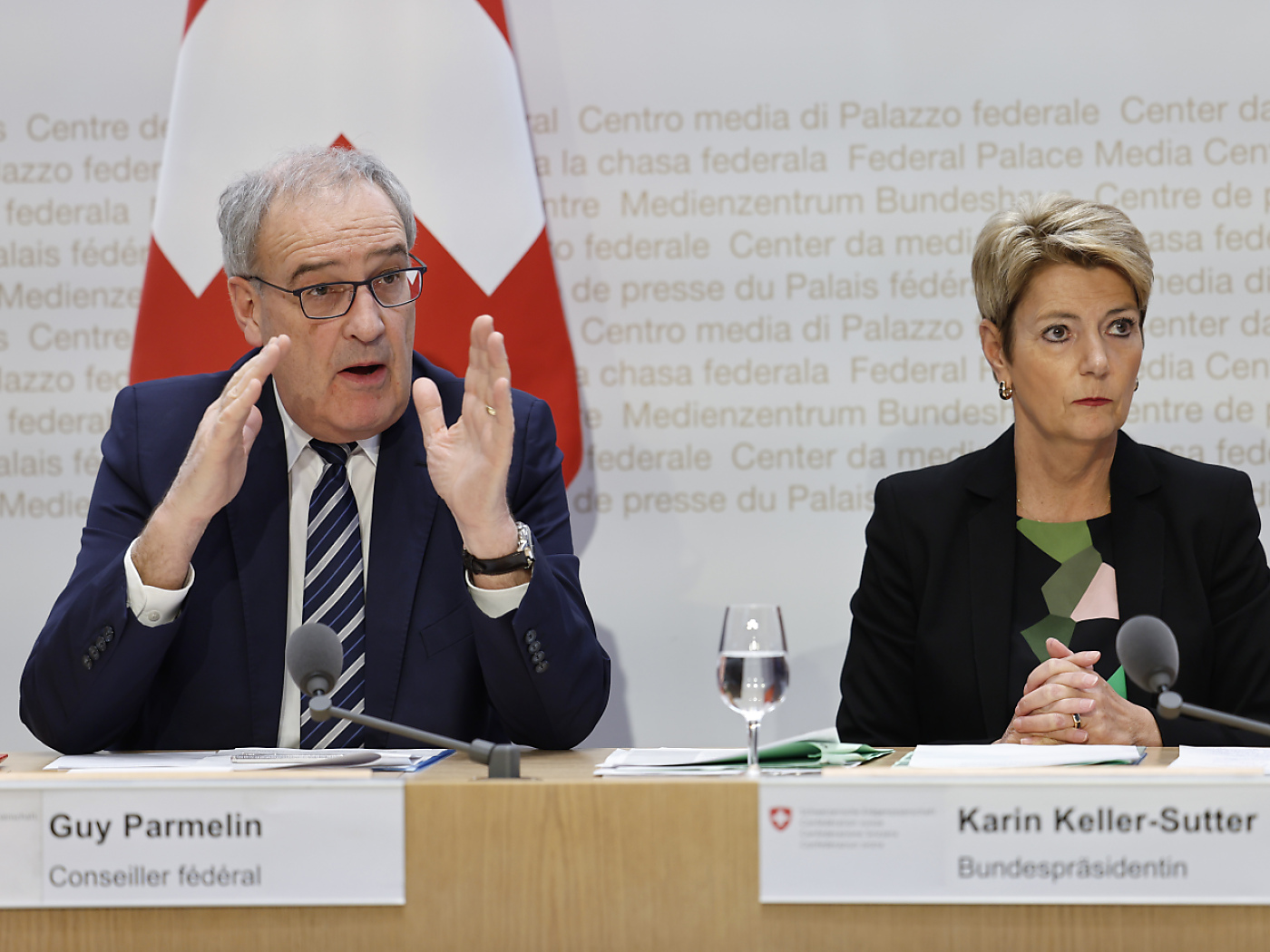




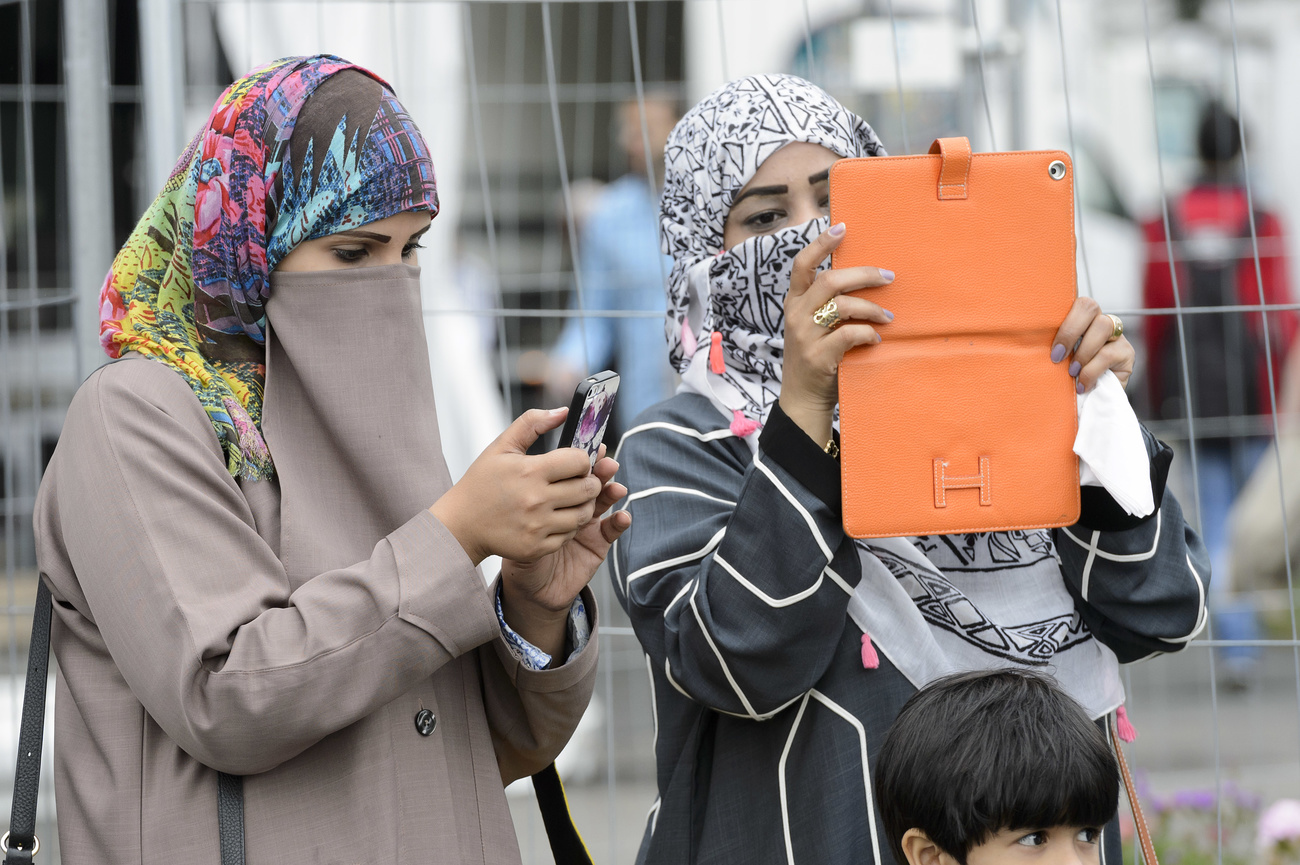

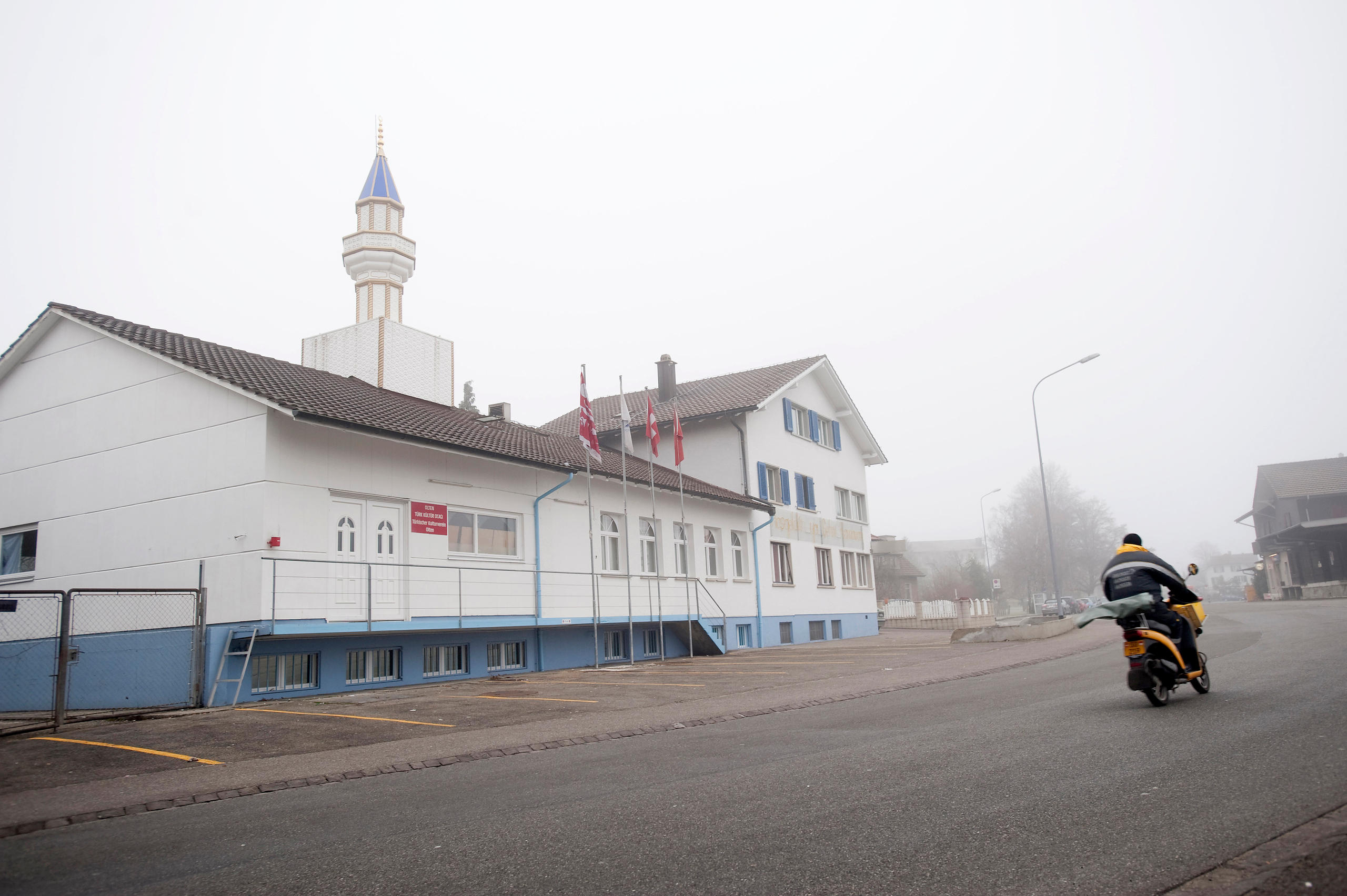

Join the conversation!